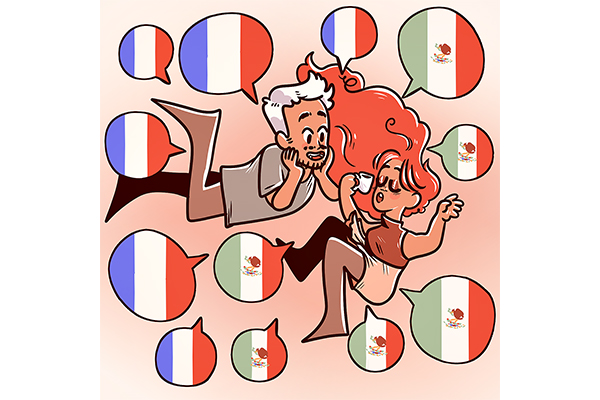Student Government proposed adding assembly representation for international students at its meeting Tuesday.
SG has no positions representing the international population, but at least two members representing other positions in the current assembly are international students. International students make up 10% of the student population, according to the University’s website.
“I’m from Indonesia, and a lot of times, I say something about this issue in the international student community, but nobody ever bothers to listen,” resolution co-author Gabrielle Wongso said. “People dismiss it, and that has made me think: ‘Do international students even have a place? Where is (their) place at UT?’”
Resolution co-author Huy Le said he is from Vietnam but has lived in Texas for the past four years. He said international students face numerous challenges, including finding resources over winter and summer breaks, using international student emergency services and lacking advisers.
“The international population is extremely diverse,” nursing freshman Le said. “They’re representing more than 100 countries at UT, and right now, there’s no representatives. Yet, their needs are often overlooked.”
Resolution co-author Braelynn Barborka said although she is not an international student, the representatives are necessary to accurately represent the student population.
“It’s mostly different cultures, so (international students) being here and getting used to American culture was a shock,” government freshman Barborka said. “It would be great for them to be able to elect someone who they know will understand them on a better level.”
Wongso, a radio-television-film and journalism junior, said this culture shock adds to a disconnect between international students and other students.
“It feels like we are only here as tokens of diversity, not as students to make the UT community better,” Wongso said. “The prejudice comes from the stereotypes on television and memes that make fun of cultures. Listening to people’s stories, it makes me feel heartache looking at how international cultures are represented.”
Wongso said the assembly currently has two elected positions for transfer students, which is a similar proportion of the population. She said adding representatives for the international community to SG would give international students their first platform at the University.
“Hopefully, this will encourage (international students) to speak out and participate because their voices are equally valid,” Wongso said. “There’s a disconnect sometimes between them and other students, but I want these representatives to serve as a bridge between the international community and UT community and administrators.”





















